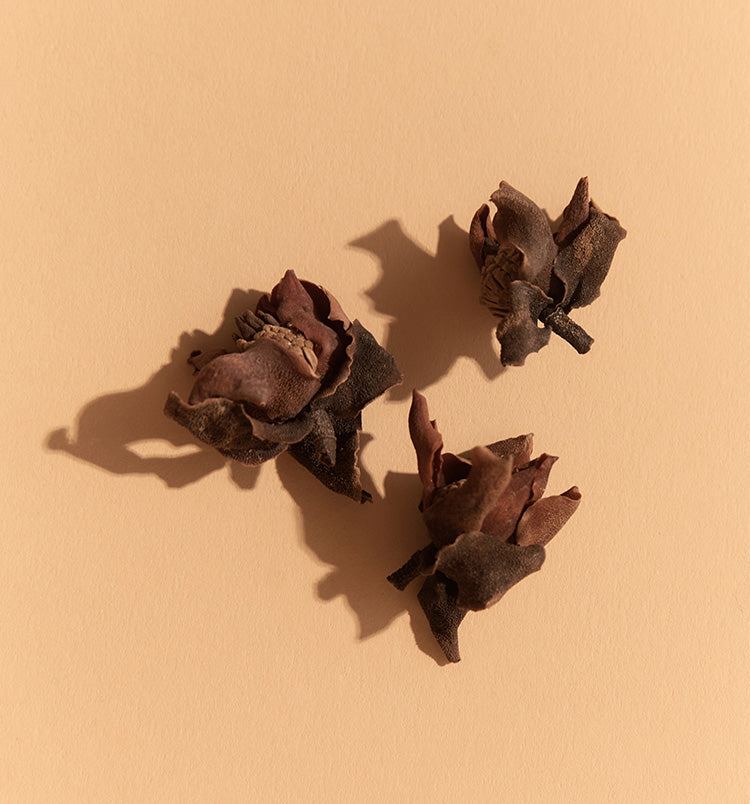The Winter season is aligned with the Kidney/Bladder system, governed by the Water element. Cold in nature and downward moving, the Kidney Water system embodies Yin, storing the body’s fluids. As it regulates and stores the Water, the Kidneys moisten the body. As a Yin element, the movement of Water is inward, it will always find the lowest point and come to rest. The Bladder is a Yang organ, perceived to be a reservoir where the fluids of the body collect. The function of the Bladder is to receive and excrete urine, produced by the Kidneys.
A simple and approachable way to nourish yourself during the colder months is to shift your eating habits and incorporate specific foods into your diet. You can also use these tips any time of the year when you are wanting to give your Kidney/Bladder system some extra loving.

Eating Habits for Winter
Remember that your body wants to be nourished and held during the colder months with warm, slow cooked foods that support this cycle. The food suggestions below are intended to support digestion, immune health and general wellbeing during Winter.
Incorporate Kidney nourishing foods
As the Kidneys are the organs associated with the Water element and Winter, they in turn require extra nourishment during this time. This ensures that their capacity and function remains in harmony as we continue to replenish and restore our energy (Jing Essence) reserves before we emerge into Spring. Nourishing the Kidneys will also in turn nourish Qi, Yang and Blood during the colder months. The Kidneys love foods that are blue and black, such as black sesame seeds, black beans, black rice, seaweed, blackberries etc.
Eat warm, hearty, slow cooked meals
As Winter is already the most Yin time of the year, an excessive intake of cold-natured foods can cause an imbalance of Yin in the body and organ systems, as the body needs more warmth to function in the presence of cold influences. The less you direct internal warmth to digest cold foods, the more available it is to support other functions, and as we move into the colder months, it is important that we keep our digestive fire alive by nourishing it with warm, slow cooked meals for easy digestion. Avoid excessively cold foods such as smoothies, ice-cream, raw salads etc. This is the time of year to take more time in the preparation of food, eating stews, soups and casseroles. Slow cooking food allows ingredients to rest during the cooking process. This is in harmony with the seasonal energetics.
Focus on the flavours of salty and bitter
The flavours that are associated with Winter are both salty and bitter foods. They promote a sinking, centering quality which enhances the capacity for storage. Cooling the exterior of the body, they bring body heat deeper and lower. It is important to understand what kind of salty and bitter foods to incorporate, and to of course use salt with care, as an excess can create restriction to the Water organs, the Kidneys and Bladder which can exacerbate coldness. The same applies with bitter foods, focusing on small, regular amounts during the Winter. Examples of bitter foods include asparagus, alfalfa, quinoa, roasted chicory root and turnip, whilst for salty, consider incorporating foods such as miso, tamari and seaweed.
Use warming spices
The practice of incorporating salty and bitter foods may still need further nourishment, especially for those with a colder constitution. Warming spices will nourish the Kidney Yang and cultivate inner warmth to the body, a vital component to staying healthy and resilient over Winter. These include chilli, ginger, cloves, cinnamon, cardamom and fenugreek.

Extra tips
- Stay hydrated - drink warm water first thing in the morning and throughout the day
- Eat a balanced meal (carbohydrates, protein and fats)
- Stew or poach your fruit
- Eat slowly and mindfully
- Incorporate Vitamin C rich foods
- Foods with a lack of Yang Qi, or vital life force, are also considered cold natured, meaning that an excess of heavily processed foods are also best avoided.
Shopping List
These are some of the foods that energetically align with the season of Winter, nourish Kidney YinYang and warm the body during the colder months.
It’s important to note that this is a general guide, and understanding your own dietary needs and constitution should also be considered, but the beauty is in the exploration of new foods and how they may nourish you.
| Fruits | Vegetables | Protein | |
|
Apples Pears Pomegranate Oranges Persimmons Mandarins Lemons Kiwi Fruit Grapefruit
|
Pumpkin Potato Sweet potato Broccoli Leek Cabbage Cauliflower Parsnip Carrots Beetroot Brussel sprouts Onions Green beans Shiitake mushrooms Fermented vegetables - kimchi, sauerkraut etc. |
Black beans Kidney beans Adzuki beans Chicken Beef Lamb Prawns Salmon Kangaroo/Wallaby Lentils Eggs Bone broth
|
|
| Grains |
|
|
|
|
Barley Quinoa Amaranth Rice Oats
|
Ginger Cumin Star Anise Chilli Clove Garlic Cardamom Rosemary Bay Leaves |
Walnuts Black sesame seeds Miso Tamari Seaweed Butter Ghee Olive oil Bee pollen
|


